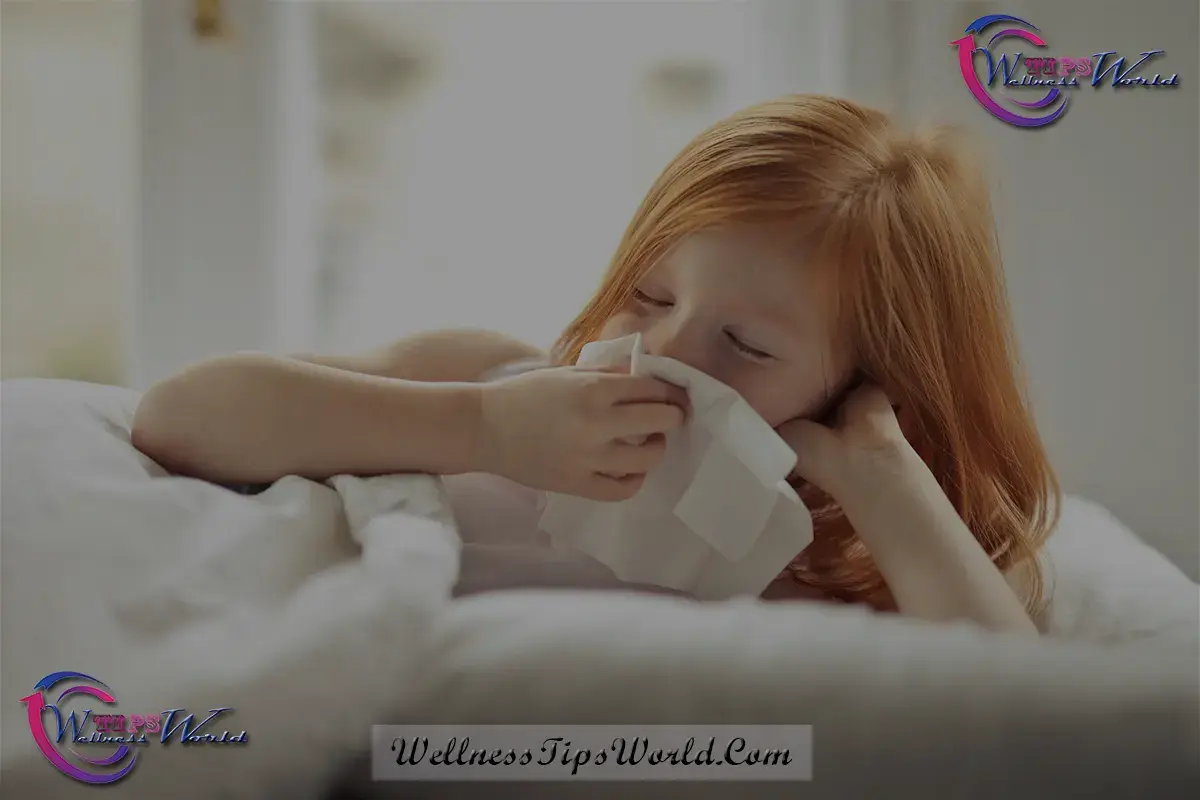5 Natural Remedies to Fight Allergies and Boost Your Immune System
-
196
- 25 Mar, 2025

If you're one of the millions suffering from seasonal allergies, you know how frustrating and uncomfortable they can be. From sneezing and itching to congestion and watery eyes, allergies can take a toll on your daily life. But what if you could reduce these symptoms and boost your immune system naturally? In this article, we'll dive into 5 natural remedies to help you fight allergies and strengthen your immune system, offering a holistic approach to staying healthy and allergy-free.
What You Will Learn in This Article
This article will explore natural, science-backed remedies that can effectively manage allergies and help you achieve a stronger, more resilient immune system. We’ll cover:
- The benefits of using herbal teas for allergy relief
- How probiotics can enhance gut health and reduce allergic reactions
- The role of local honey in fighting hay fever
- The power of essential oils in managing allergy symptoms
- The immune-boosting effects of vitamin C and how to incorporate it naturally
By the end of this article, you’ll have practical, actionable strategies to fight allergies naturally while giving your immune system a well-deserved boost.
1. Herbal Teas: A Calming Solution for Allergy Symptoms
When allergies flare up, the body’s immune response can cause inflammation and discomfort. One of the most soothing and natural ways to manage these symptoms is by sipping on herbal teas. Certain herbs have been shown to possess anti-inflammatory, antihistamine, and decongestant properties that can help reduce allergy symptoms.
Best Herbal Teas for Allergy Relief
Peppermint Tea – Peppermint is well-known for its soothing effect on the respiratory system. It has menthol, which helps to open the airways and ease nasal congestion. Drinking a cup of peppermint tea can help clear your sinuses and improve breathing.
Ginger Tea – Ginger is a powerful anti-inflammatory herb that can reduce the symptoms of allergies, especially inflammation caused by nasal congestion. It also helps to boost the immune system, making it an excellent choice during allergy season.
Chamomile Tea – Chamomile is a soothing herb known for its anti-inflammatory benefits. Its calming effects help reduce the discomfort that often accompanies allergies, such as sore throats and itchy eyes. However, be cautious if you're allergic to ragweed, as chamomile may cause a reaction in some individuals.
Nettle Tea – Nettle has been used for centuries as a natural remedy for hay fever. It contains natural antihistamines that can help reduce sneezing, itching, and a runny nose.
How to Use Herbal Teas Effectively:
To maximize the benefits of these herbal teas, drink them regularly throughout the day. Start with one or two cups per day and see how your body responds. Be mindful of any possible allergic reactions, and consult with a healthcare professional if you have any concerns.
2. Probiotics: Strengthening Your Gut and Immune System
Did you know that your gut health is closely linked to your immune system and how your body reacts to allergens? Research suggests that a healthy balance of gut bacteria can help regulate the immune system, making it less likely to overreact to harmless substances like pollen, dust, and pet dander.
How Probiotics Help Fight Allergies
Probiotics are live microorganisms that promote a healthy gut microbiome. These "good" bacteria can help modulate the immune response and may reduce the severity of allergy symptoms. Lactobacillus and Bifidobacterium, two commonly used strains of probiotics, have shown promising results in improving allergy-related inflammation.
Probiotic-rich foods like yogurt, kefir, and sauerkraut can be part of your daily routine. Alternatively, you can take probiotic supplements to ensure you're getting a sufficient dose.
Why Gut Health Matters for Allergy Relief
When your gut flora is imbalanced, it can lead to an overactive immune system that may trigger allergic reactions. By restoring balance with probiotics, you can strengthen your immune system and reduce the chances of allergy flare-ups.
3. Local Honey: Nature’s Sweet Solution to Seasonal Allergies
For centuries, local honey has been praised for its ability to fight allergies. The idea behind using honey for allergies is based on the concept of immunotherapy. When you consume small amounts of local honey, you're essentially ingesting trace amounts of local pollen, which may help build your immune system’s tolerance to these allergens.
The Benefits of Local Honey for Allergies
Natural Antihistamine: Honey contains small amounts of pollen, which helps your body gradually become desensitized to these allergens.
Soothing Effect: Honey can help relieve sore throats and coughing, common symptoms of allergies.
Immune Boosting: The antioxidants in honey can enhance immune function, helping your body fight off other infections.
How to Use Local Honey
To experience the benefits, consume a spoonful of local honey each day, ideally a month or so before allergy season begins. Start with a small amount and gradually increase your intake to help your body adapt to the pollen.
4. Essential Oils: Aromatherapy for Allergy Relief
Essential oils offer a natural and effective way to combat allergy symptoms. Many oils possess properties that can help clear sinuses, reduce inflammation, and even improve your mood during allergy season. Using an essential oil diffuser or applying diluted oils topically can provide quick relief from allergy symptoms.
Essential Oils to Use for Allergy Relief
Eucalyptus Oil: Eucalyptus is a powerful decongestant and can help open up the airways. It’s great for clearing blocked sinuses and improving breathing.
Lavender Oil: Lavender has natural anti-inflammatory and antihistamine properties, which can help reduce sneezing, itching, and other allergy symptoms.
Peppermint Oil: Like peppermint tea, peppermint oil is effective in easing congestion and opening the airways.
Tea Tree Oil: Tea tree oil is celebrated for its ability to combat microbes and reduce inflammation. It can help fight infections that sometimes accompany allergies, like sinusitis.
How to Use Essential Oils for Allergy Relief
To use essential oils for allergy relief, try the following methods:
Aromatherapy Diffuser: Add a few drops of your chosen essential oil to a diffuser and breathe in the vapor.
Topical Application: Dilute essential oils with a carrier oil (like coconut oil) and apply to your chest, back of the neck, or temples.
Steam Inhalation: Place a few drops of essential oil into a bowl of hot water, drape a towel over your head, and breathe in the steam.
5. Vitamin C: The Immunity Booster
Vitamin C is one of the most well-known immune-boosting nutrients, and it plays a critical role in fighting off allergens. It acts as a natural antihistamine, reducing the amount of histamine your body releases in response to allergens.
How Vitamin C Helps with Allergies
Natural Antihistamine: Vitamin C helps lower histamine levels in the body, reducing symptoms like sneezing, runny nose, and itching.
Supports Immune Health: As an antioxidant, vitamin C strengthens the immune system and helps your body fight off infections.
Reduces Inflammation: Vitamin C also works as an anti-inflammatory, helping to calm the swelling and irritation in your nasal passages.
Foods Rich in Vitamin C
To fight allergies naturally, consume foods high in vitamin C such as:
- Citrus fruits (oranges, lemons, grapefruit)
- Strawberries
- Kiwi
- Bell peppers
- Broccoli
You can also consider taking a vitamin C supplement if you feel you're not getting enough through your diet.
A Natural Approach to Allergy Relief and Immune Boosting
Fighting allergies and supporting your immune system doesn't have to mean relying on pharmaceutical medications. By incorporating these natural remedies into your routine, you can take a holistic approach to improving your health and alleviating allergy symptoms. Whether you choose herbal teas, probiotics, local honey, essential oils, or vitamin C, each of these remedies offers unique benefits that can help you breathe easier and feel better during allergy season.
By focusing on strengthening your immune system and reducing inflammation, you can reduce your reliance on over-the-counter medications and promote a healthier, more balanced lifestyle. If you’re unsure where to start, consider consulting with a healthcare professional who can guide you in choosing the best approach for your unique needs.










